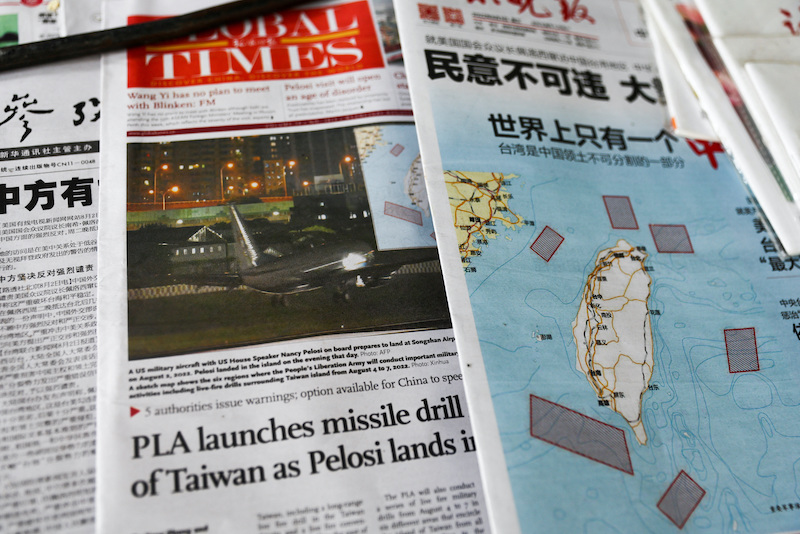Stocks rose in China and Hong Kong on Thursday, as investors turned their eyes from tensions in Taiwan to new infrastructure projects that Beijing is proposing to boost its sluggish economy.
Hong Kong’s benchmark Hang Seng Index climbed by 1.7% in afternoon trading, while the blue-chip CSI300 Index was 0.6% higher, and the Shanghai Composite Index gained 0.5%.
Analysts said markets were relieved that US House of Representatives Speaker Nancy Pelosi’s visit to Taiwan didn’t trigger direct military conflict, although Sino-US tensions linger over the self-ruled island that China claimed its own.
“This episode is just going to be one of many episodes that are going to happen in the next 10 years, where every now and then there’s going to be tensions between the two superpowers,” said Nuno Fernandes, partner and portfolio manager of GW&K. “We do think that cooler heads prevail.”
Investors’ focus now shifted to signs infrastructure investment is gathering pace as Beijing seeks to revive its economy.
In July, 3,876 major projects started construction, involving total investment of 2.4 trillion yuan ($355.33 billion), the Securities Times said on Thursday.
In the second half, China’s State Grid plans to invest more than 150 billion yuan in ultra high voltage (UHV) power transmission lines, state media Xinhua News reported.
China’s infrastructure stocks rose by 0.7%, while banking stocks also gained ahead of the release of July lending data.
In Hong Kong, the Hang Seng Tech Index jumped 2.2%.
Hong Kong-listed shares of Alibaba jumped 4% as the Chinese tech giant will report its earnings on Thursday.
Trip.com, Baidu and SMIC all rose more than 3% in Hong Kong.
ALSO SEE: China Hits Taiwan With Economic Sanctions as Pelosi Visits
Yuan Edges Higher
China’s yuan edged higher on Thursday, tracking a firmer official guidance rate, but gains were capped by broad dollar strength and concerns over rising Sino-US tensions.
Currency traders said investors would continue to closely monitor Sino-US relations, as China’s military has begun exercises including live firing in the waters and in the airspace surrounding Taiwan, according to the state media.
Prior to the market opening, the People’s Bank of China (PBOC) set the midpoint rate at 6.7636 per dollar, 177 pips or 0.26% firmer than the previous fix of 6.7813.
In the spot market, the onshore yuan opened at 6.7500 per dollar and was changing hands at 6.7570 at midday, 27 pips firmer than the previous late session close.
Apart from geopolitical factors, the yuan’s near-term trend is likely to be determined by the dollar’s moves in light of the Federal Reserve’s policy tightening trajectory, traders said.
The dollar strengthened in morning deals, after several Fed officials voiced their determination again to rein in high inflation.
Markets will also closely monitor US non-farm payroll data due later in the week, said a trader at a Chinese bank, noting any changes to the pace of Fed tightening expectations could affect the dollar and major currencies.
“With the re-pricing of Fed’s unusual large rate hikes in the rest of this year”, the forward curve was pressured downward, said Ken Cheung, chief Asian FX strategist at Mizuho Bank.
- Reuters with additional editing by Jim Pollard
ALSO SEE:
China’s CATL Seen Sticking to US Plan Despite Pelosi Trip
Meme Traders Fuel Fintech AMTD Digital’s 21,000% Stock Rise
China Telco Giant Vivo Accused of $280m India Tax Evasion
























